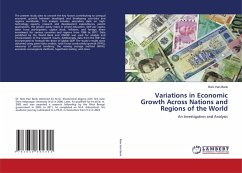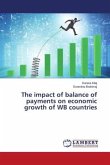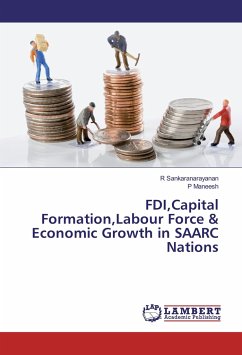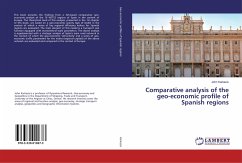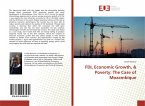The present study aims to unravel the key factors contributing to unequal economic growth between developed and developing countries and regions worldwide. This analysis includes secondary data on high-technology exports, research and development expenditures, patent applications, the gender parity index in school education, GDP per capita, labor force participation, capital stock, inflation, and foreign direct investment for various countries and regions from 1996 to 2017. Data published by the World Bank and UNICEF was used for analysis and interpretation of the research results. Additionally, data from the IMF was incorporated to forecast the share of global GDP. The study's results were obtained using panel data analysis, total factor productivity growth (TFPG), measures of central tendency, the moving average method (MVA), economic convergence methods, hypothesis testing, and more.
Bitte wählen Sie Ihr Anliegen aus.
Rechnungen
Retourenschein anfordern
Bestellstatus
Storno

